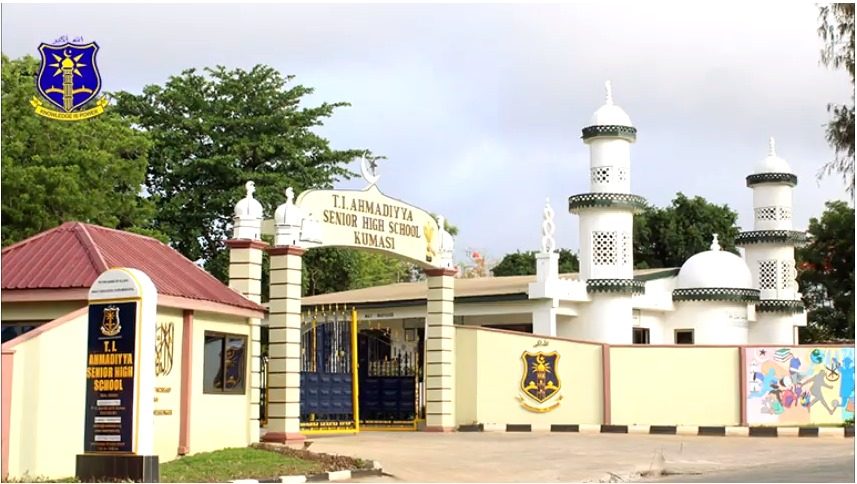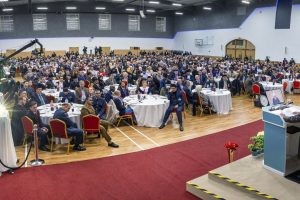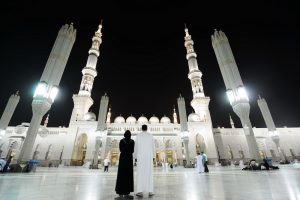
Image of Ahmadiyya School in Kumasi, Ghana
Kamal Lambon, Ghana
For a nation to be classified as peaceful, religious tolerance must be a key ingredient that permeates its institutions, enhancing peaceful coexistence among its citizens. In this regard, Ghana’s long-standing reputation for being peaceful has been directly influenced by groups of individuals and communities who value peace.
This makes it imperative to highlight the contribution that the Ahmadiyya Muslim Community has made to the peaceful ecosystem of Ghana through its institutions and the exemplary lives of its members.
The Ahmadiyya Muslim Community, founded by Hazrat Mirza Ghulam Ahmad (as) in 1889, is a revival movement within Islam. It emphasizes the essential teachings of peace, love, justice, and universal brotherhood. With the Holy Qur’an (the sacred scripture of Islam) as the ultimate guide, it has been the strongest advocate for religious tolerance and freedom for people worldwide.
The Holy Qur’an mentions that “There should be no compulsion in religion…” (Qur’an 2:257). This verse clearly highlights that no one should be compelled to practice a particular faith under any circumstance whatsoever. It underscores the importance of freedom of belief and conscience in Islam.
Islam teaches tolerance on all levels: individual, groups, and states. Tolerance is the foundation that supports cultural diversity and the rule of law. Allah says in the Holy Qur’an clearly: “To every people have We appointed ways of worship which they observe; so let them not dispute with thee in the matter; and invite thou to thy Lord, for surely, thou followest the right guidance”(Quran 22:68). So, we see that this verse from the Holy Scripture mentioned above prohibits the suppression of people. Rather, present the message of Islam to them in a respectful and clear manner, inviting them to discover the truth.
Pegham-e-Suluh (A Message of Peace), the last written work of the Promised Messiah (as), also emphasizes the importance of peace and tolerance among people from all walks of life. In this work, as well as in many of his other writings and addresses, he passionately highlights the significance of fostering peace and tolerance. With these guiding principles, the community has had a great deal of influence on its members and has translated into the establishment of institutions throughout the country.
Maulvi Dr. Abdul Wahab Adam, the late Ameer and Missionary In-Charge of the Ahmadiyya Muslim Community, played a significant role in promoting peace and harmony in Ghana. Leading the Ahmadiyya Muslim Community in Ghana for 40 years, he was at the forefront of the pursuit of national peace, justice, and stability. He was appointed as a member of the National Reconciliation Commission (NRC) in 2002. After his work with the commission, Maulvi Dr. Wahab Adam continued his national service for peace when he was appointed as a member of the National Peace Council (NPC). As the Vice-chair of the NPC, he, along with other members of the council, toured the entire country to promote peace. Maulvi Dr. Adam was known for his peaceful nature, warm demeanor, and his ability to engage with people receptively. His work has since left a lasting impact on Ghana’s peace efforts, and his memory continues to inspire many Ghanaians.
One other area the Ahmadiyya Community has made an impact is the promotion and practice of religious tolerance in its Second Cycle (Senior High School) institutions in Ghana. The Ahmadiyya Community has seven Second Cycle institutions across the nation, offering tuition to individuals of all races, genders, and religious affiliations.
For a mission school in Ghana, it would not have been out of place to expect students to adhere to rigorous standards regarding practices that are central to their religious credo. But this is where the Ahmadiyya Second Cycle Institutions stand out. Their clear permission and facilitation of interreligious practices have made them a beacon to be emulated. On Fridays, these institutions allow non-Ahmadi Muslims to pray at mosques of their choice outside the school premises without discrimination or restriction. This practice is also repeated for Christians on Saturdays and Sundays. Even beyond that, Christians who wish to fellowship within the walls of the schools are provided with designated spaces to do so without any interruptions. This level of religious freedom is uncommon in Ghana’s secondary schools.
At school gatherings, the “Al-Fatiha” is recited by Muslims while the Christians also have a session for the recitation of the “Lord’s Prayer” before the commencement of routine announcements by school officials. Again, students are free to express their religious mode of dressing as long as it does not contradict the standards of Ghana’s educational framework. As Muslim ladies don their veils, ladies of the other faiths are not in the slightest of ways coerced to do the same.
An existing law in these Ahmadi schools, which prohibits accepting student converts while they are still enrolled, serves as a strong affirmation that the community respects and upholds the religious rights of individuals from other faiths within the school.
A popular journalist from JoyNews, Joseph Opoku Gapko (a Christian), published an article in 2015 highlighting the remarkable freedom and religious tolerance he experienced at T.I. Ahmadiyya Senior High School when he was a student there. He emphasized the importance of other mission schools following suit. In a portion of his writing, he said, “As I write this piece, I’m imagining how unpleasant my SHS days would have been if anyone forced me to perform ablution and pray five times a day because I’m attending their school. But thank God for schools like AMASS*”
(*T.I. Ahmadiyya SHS, Kumasi)
This and many expressions by Christians and other religious denominations point to the fact that the teaching of religious freedom and tolerance by the Ahmadiyya Community is permeating through its established educational institutions as well. With the beautiful rapport existing between different faiths in those institutions, this has ultimately illuminated how Islam is viewed and what Islam truly represents. The Ahmadiyya Community practices the mantra of “Love for All, Hatred for None” in all aspects.
With the rapid growth of Ahmadiyya in Ghana, it is certain that the peaceful tranquility existing due to the community’s contribution will be further strengthened by Allah’s grace and guidance in the years ahead. Insha’Allah.
About the author: Kamal Suguruman Lambon holds a Bachelor of Science in Administration. He currently works as a Deputy Health Service Administrator at House of Hope Hospital.




Add Comment